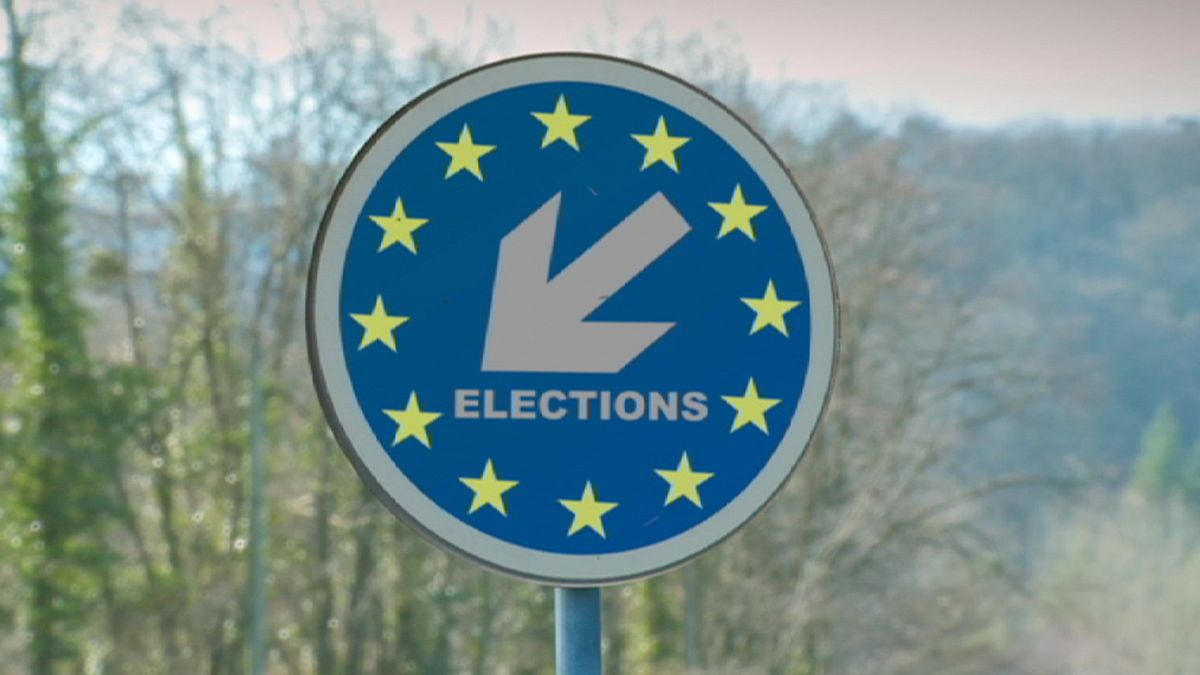In May, the 28 countries of the EU will vote for a new European parliament. But against the backdrop of an economic crisis, many observers anticipate a record low turnout and a surge in support for populist parties and eurosceptics.
As Guillermo Rodriguez, a Madrid-based activist puts it: “In some ways it’s the political crisis, and not only the economic and social crisis that’s brought us to where we are. So it’s up to the citizens to mobilise. We can’t allow the politicians to act for us.”
Turnout has dropped consistently since first European elections. At the last vote in 2009 the average turnout across the union was a new low of 57 percent.
Spain is traditionally very pro-Europe, but today it is one of the country’s worst affected by unemployment and recession. According to opinion polls, Spaniards’ confidence in Europe has significantly fallen in recent years. On the streets of Madrid talk of the elections evokes a sceptical and even defiant response.
One woman expressed her exasperation: “I don’t think I’ll vote. I think Europe’s in a mess at the moment. I don’t see anything that’s working, you only have to look at this country!”
There was similar scepticism from a man: “As always very few people will vote. Why? Because we don’t trust our political leaders, particularly here in Spain.
“Europe’s not working for us, really. We presume they’re going to impose more austerity on us,” said another Madrid woman.
An unprecedented protest movement sprang to life in Madrid’s Puerta del Sol. Called Los Indignados it brought together hundreds of thousands of people who were galvanised by a common disillusionment with the political class and desire to change society.
Guillermo, 25, was among them. Now he is preparing to stand in the European elections for a new party, Equo. Its mission is to change Europe.
“I’m in the middle of making a video for Equo, which is a Spanish ecology party,” he told euronews. “What happened was that people like me came onto the streets and that became a citizens’ movement, and then that developed into a political movement. The institutions are where the big decisions are taken. If we aren’t there in the institutions, they’ll continue to take those decisions without us.”
The movement ‘Real Democracy Now!’ was behind the original call for street protests. We met a spokesperson at their headquarters, a squatted building in downtown Madrid. Despite their opposition to Europe, these activists are urging people to vote in the May elections.
“Unfortunately, in Spain the Euro elections are used only to punish the government of the day. But we believe these elections are very relevant to our lives. Many of the laws coming from Europe affect our daily lives – we aim to politicise the voters, to make them aware what these elections represent,” said spokesperson Kike Castello.
So, what role and powers do MEPs have? How are the laws put into place? To encourage people to vote, all parties agree on the need to make clear what is at stake in these elections.
‘Right On’ reporter Anne Devineaux highlights a new development in these coming elections: “Finding a way through the maze of the EU institutions is not so easy. To make these elections more transparent the parties, for the first time, have been urged to indicate their choice for European Commission President.”
In line with the 2009 Lisbon Treaty, Europe’s leaders are obliged to take into account the election results in choosing a Commission President, whose role is like a prime minister’s. At the same time the treaty gave MEPs even greater powers. That is even more reason to get out and vote, according to the head of the European Parliament office in Madrid.
“We’ve been able to make these elections more politically relevant than ever, so that if the Parliament has a centre-right or centre-left then the president of the Commission will be either centre-left or centre-right.” says Ignacio Samper. “That’s radically new. For a long time we said to the citizens ‘Vote for a European Parliament’. I don’t know any country where they’d say ‘Vote for a parliament’. No, we vote for candidates.”
Getting young Spaniards to debate Europe and cast their ballots is also the goal of the youth oriented group Con copia a Europa. They host blogs and hold meetings and debates in universities and cafes.
The group’s Adriana Maldonado told us it is vital that young Europeans use their vote: “Those of us who were born in the European Community, it’s imperative that we have a vision of what Europe needs, of the necessary reforms. Con Copia a Europa doesn’t want to indoctrinate, we’re not aligned to any political party. Our objective is make everyone aware of what’s at stake in Europe, of the importance of Europe and that everyone has their own idea.”
Voters play they part by turning out to vote, beyond that it is up to the politicians to enliven the European debate. They are now getting ready for battle, in what promises to be an intense and vigorous election campaign.


